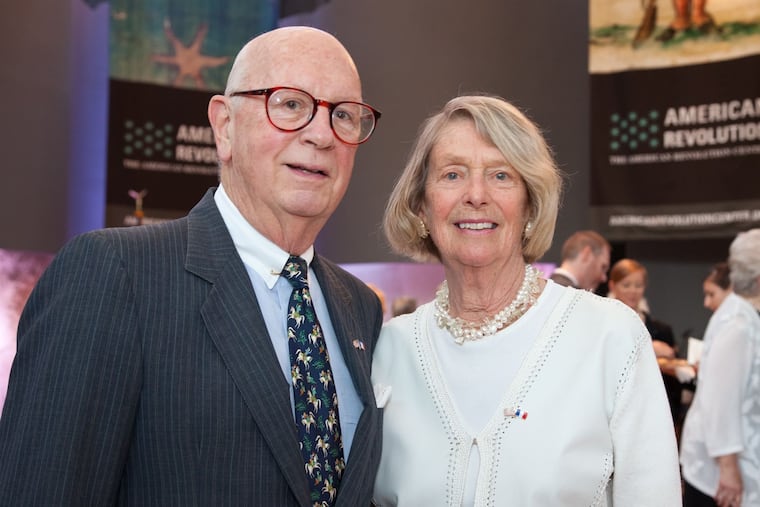David Acton, founding father of the Museum of the American Revolution, dies at 87
He worked tirelessly for more than 20 years to help create and manage the museum, which opened in 2017.

David Acton, 87, of Gladwyne, a Navy veteran, businessman, lawyer, and founding father of the Museum of the American Revolution, died on Monday, July 27, of congestive heart failure at Bryn Mawr Hospital.
Calling Mr. Acton a history enthusiast would be an understatement. The graduate of Episcopal Academy, Yale University, and the University of Pennsylvania law school was an education activist, too, and he worked tirelessly for more than 20 years to help create and manage the museum, which opened in 2017.
“He loved learning,” said son Paul. “He loved history, and he loved educating.”
“He wanted to contribute to the legacy of Philadelphia,” said his wife, Jane, who joined Mr. Acton in active membership at the museum.
Born in 1933, Mr. Acton was the son of Mary and Kenneth Acton, grandson of Clarence A. Musselman, and great-grandson of Reuben O. Moon. Musselman was the co‐founder of the Chilton Co., a publisher, and Moon was a U.S. representative from Pennsylvania in the early 1900s.
Mr. Acton grew up in Merion and embarked on a life of intellectual curiosity and public service. He served in the Navy between his time at Yale and Penn, and returned often to the ocean for vacations and family reunions in Maine. He got his pilot’s license and favored seaplanes.
Mr. Acton excelled while working for his grandfather at Chilton and later as an investment manager, real estate developer, corporate executive, and attorney specializing in dispute resolution. He was an avid wine collector and liked to bring out “something special” when friends and family visited, his son said.
“He was a logical man,” Paul Acton said. “He was thoughtful, and that extended to anyone.”
Mr. Acton had a dry sense of humor and liked to share entries from his book of Maine jokes. He read the newspaper every day. He was a member of at least a dozen civic and social organizations, and was active in all of them.
It was his dedication to the creation of the Museum of the American Revolution that brought Mr. Acton his most public acclaim. A cheerleader for the project, he “wanted to bring it to life,” his son said. He knew David McCullough from their time at Yale and drew the Pulitzer Prize-winning historian into the effort.
Mr. Acton first served as secretary of the board of directors of the American Revolution Center, the nonprofit that created the museum and supplied its artifacts, and vice chairman of the museum’s building committee. He served on the board of directors from 2001 to 2019 and was named director emeritus when he retired.
“We are grateful to Mr. Acton for his leadership, generosity, and tireless exuberance,” the museum staff said in a tribute. “His legacy lives on at the Museum of the American Revolution as we make real the vision he saw nearly two decades ago — to ensure that the promise of the American Revolution endures.”
Mr. Acton met Barbara Sullivan at a dance and married her in 1955. They raised son Paul and daughter Lauren. After their divorce, he met Jane Young at Gullifty’s restaurant, and she, a widow, was impressed with his intelligence and poise. They married in 1978, and she still marvels at how he maneuvered their blended family into a single loving group.
“He was a super husband, loving father and grandfather,” his wife said. “Just a wonderful man.”
In addition to his wife and children, Mr. Acton is survived by stepchildren Stan Young, Ron Young, and Betsy Kania, and eight grandchildren. His first wife died in 2015.
Services are private.
Donations may be made to the Museum of the American Revolution, 101 S. Third St., Philadelphia, Pa. 19106.
.